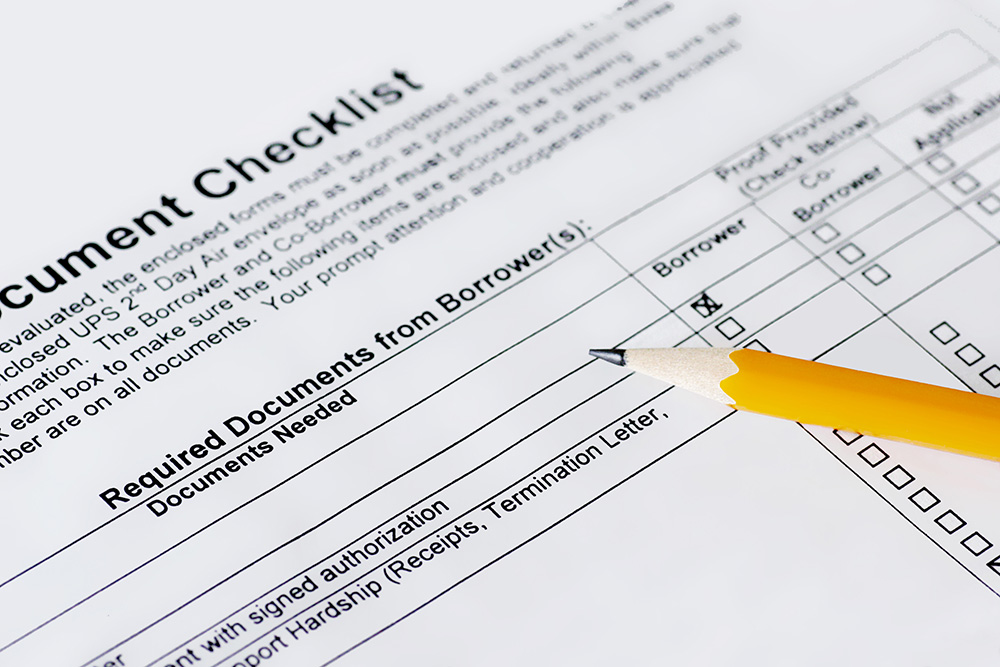|
The process of shopping for a mortgage loan can be a somewhat daunting task. Whether you’re buying your first house or consider yourself a pro, it's good to educate yourself and know what the latest options. In a mortgage, the most popular home financing option, the house you buy acts as the collateral in exchange for the amount you borrow. Lenders in the current financial markets have many products, meaning there is a different type of mortgage for nearly every need.
The two main types of mortgages are fixed rate and adjustable rate. A fixed rate offers stability in a fixed interest rate over the term of the loan -- whether it's 10, 15, 20 or 30 years – as payments are always the same. During the early part of the loan, the majority of each payment goes toward paying off the loan's interest. In the latter part of the loan, the payments are paying off mostly the principal. An adjustable rate mortgage (ARM) offers an adjusting interest rate that may increase or decrease within certain set period of time. The interest rates are tied to a market index, and as the market fluctuates, so will your monthly payment. The intervals of time in which the interest rate is adjusted are specified in the loan contract, and often times there are caps placed on how much the rate can increase. A hybrid ARM loan is a type of adjustable rate mortgage that start off with a fixed rate for a set amount of time before rates begin to adjust. There are also two government-backed loans insured by a federal agency. An FHA loan is designed for first-time buyers and buyers with moderate or low income and is by far the most popular. The biggest benefit of an FHA loan is the low down payment (generally around three percent) and lower interest rates than standard fixed rate loans. If you qualify, VA and USDA loans are no-brainers, as no down payment is required. If the most common types of mortgage loans don't fit your situation, look into interest-only mortgages, balloon payment mortgages, graduated payment mortgages (GPM), two-step mortgages, bi-monthly mortgages and bi-weekly mortgage options.
1 Comment
Let’s face it, moving isn’t always a great experience. It can be stressful, time-consuming and irritating. But with a little planning and preparation, it really is possible to reduce your stress and save a little sanity.
Whether you’re moving just yourself across town or packing up an entire family for a cross-country move, you can make it easier on yourself with a few helpful tips: Tips for stress-free packing
Whether you're buying your first home or are a real estate veteran, the closing process can be a whirlwind. "Closing" simply refers to the day you complete the deal. You close on the property purchased and on the mortgage or loan used to finance the purchase, and the seller receives the money.
Closing can be stressful for anyone, with a lot of details, a lot of paperwork and a lot of signatures. Some of what happens can depend on where you live and local customs, but being prepared and knowing what will happen can ease your anxiety. A closing can take place at a number of locations – typically at the offices of a title company or your lender or real estate attorney – and a neutral third party such as a closing agent will preside over the documents, signatures, instructions and payments. Depending on the situation (such as what state you live in) the closing could include your attorney or real estate agent, the seller and their attorney, a representative from your lender or a title company, a closing officer and a notary public. As part of the closing process, you will review a series of documents to make sure they are correct and you know what you are agreeing to. Most closings are actually two closings – on your house and mortgage – so there will be documents for each. The main mortgage documents include a Promissory Note, Truth in Lending Statement, Mortgage or Deed of Trust, and Monthly Payment Letter. The documents dealing with the real estate include a Settlement Statement, Warranty Deed, Proration Agreements and Abstract of Title, among others. Bankrate.com and Zillow.com both offer helpful lists along with explanations. Once certainty is that your closing day will also require some money on hand. A certified or cashier's check will be required to pay your down payment as well as escrows (interest, taxes, insurance) and your portion of the closing costs, which are agreed to ahead of time in the Settlement Statement. You will also need to show proof of homeowner's insurance and might be required to open an escrow account with your lender. The final step in closing is when the closing agent records your deed with the county government. Once the deed and security instrument are filed, the property is officially yours. For more, the U.S. Department of Housing and Urban Development also offers some more detail on what to expect at closing. You might be ready to buy a home, but are you prepared?
Regardless of whether you are a first-time home buyer or an experienced owner, it’s good practice to conduct a pre-purchase reality check before buying a house. Before you jump into the financial commitment of the purchase, give careful consideration to your financial situation and whether you are truly prepared to buy. Here is a six-item checklist of items to check off before buying a home: • Strengthen your credit score. In general, the higher your credit score, the lower your down payment and monthly payments, which impact your buying power. • Get pre-approved for a mortgage. If you’re truly serious, do your research on rates and have your financing in place before you walk through the first house to know how much you can afford, and to make a stronger offer. • Have your financial house in order. Beyond what your credit looks like, don’t change jobs, change banks, buy a vehicle or any big-ticket items. Avoid inquiries into your credit, don’t be late on payments and don’t charge excessively. • Save for a down payment and closing costs. The national average for down payments nationwide is 16 percent, according to LendingTree. Also know the average closing costs in your area. • Build a healthy emergency fund. Have several months worth of mortgage payments set aside, so lenders can see you’re not check-to-check, making you a better loan candidate. Plus, repair issues and home emergencies always come up. • Control your debt and know how much you can afford. Gain control of the debt you already have, starting with high-interest debt. Know how much payments you can afford, with a safe formula that expenses should not exceed 28-31 percent of your gross monthly income. |
Categories
All
Archives
June 2016
|
|
Contact Kirsten to get started today.
(310) 756-3524 [email protected] #DRE 01450452 Ask her about her newsletter to get current South Bay Market information and real estate news right to your inbox... no spammy ones, promise! |
|
Copyright © 2021 Kirsten Cole. All rights reserved.






 RSS Feed
RSS Feed
